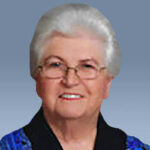“Which of these three, do you think, was a neighbor to the man who fell into the hands of the robbers?” He said, “The one who showed him mercy.” Jesus said to him, “Go and do likewise.”
These were the closing words of Jesus to a lawyer who was trying to test him regarding who he should consider to be his neighbor. They came after Jesus had shared a parable with him about a Samaritan who had taken care of someone he found beaten and dying on the side of the road after two other Jewish clergy had passed by on the other side of the road, not helping him. When Jesus asked him who treated the beaten man like a neighbor, the lawyer would not even identify the helper as the Samaritan. He simply said it was the one who showed mercy. One obvious moral to Jesus story is that everyone is our neighbor. A neighbor is not described by a country, a culture, a family, a standard of living, or wealth, a skin color or any other means of separating people into classes. But I saw something as I read the story again that I had not seen before. As the Samaritan showed mercy to the man who he helped it put him in a place of vulnerability. It cost him time, money, and full commitment to the one he helped.
As I thought on the charge Jesus made to the lawyer, “Go and do likewise,” I thought how often I am guilty of passing by those who need our help. I also thought how God often shows up where we least expect God to be, and how we need to be open to others in order to see them and treat them as our neighbor.
I remember one day I had planned my morning’s work at the church office. I planned to prepare some material to share with the Outreach Committee about reaching out to those in our community who needed to know or be reassured that God loved them.
But before I began that work a man walked into the office asking if the church had any work he could do. He had hitch hiked from somewhere in Mexico through El Paso and spent a week on the road in that process. He had run out of money, and wanted to earn enough to at least buy some food and medication that he needed to take daily. I told him we didn’t have any work for him but I could prepare him a sack lunch to take with him. He graciously accepted it.
While I prepared a sack lunch for him in the church kitchen I thought about my flower beds at home that needed weeding badly. So, I asked him if he could clean out flower beds, and if so I could pay him $50.00. He said he would be glad to do that. So the two of us got into my car and headed out to my house which was in a rural area. About half way there I asked what medication he needed to buy, and he told me he took medication for a mental condition. That is when I became alarmed that I should have found some other way to help this man. I had a man in my car who I did not know who also suffered with a mental condition requiring medication. I got a bit frightened to say the least, but as soon as we got to the house I gave him the equipment he needed and showed him the work that needed to be done. I went back into my house, locked the doors, began to pray and called my son. I explained what I had done and asked him to please come by on his noon hour and take him to our local homeless shelter. I called the shelter, and shared his situation and they said they could take him and possibly help him find a work.
When noon came, he had finished with the flower beds, so I paid him and my son took him to the shelter. Before leaving he thanked me for the assistance, and I thanked God that I had discovered that sometimes being a neighbor means that I have to be vulnerable and trust in God for the outcome. God comes where we least expect God to be because God comes for all. The self-justifying lawyer and the outcast Samaritan; refugees and those who want to keep them out; those in need, those who help them, and those who turn away. No one is beyond the pale of God’s mercy, grace, and redemption. So “Go and do likewise” helped me understand at a deeper level that we are all neighbors. I also learned that day that when God shows up, he teaches us much more than we planned to know about something. Always, and always, when we ‘go and show mercy’ that is a place where God shows up.
Sue is NLS Spiritual Director, since 2019 and is a retired Lutheran Pastor (ELCA). Active in VdC since 1995, she has served two terms on the Board of the Texas VdC Secretariat, and also on the Texas Gulf Coast VdC Board as Spiritual Director since its start-up in 2017.


